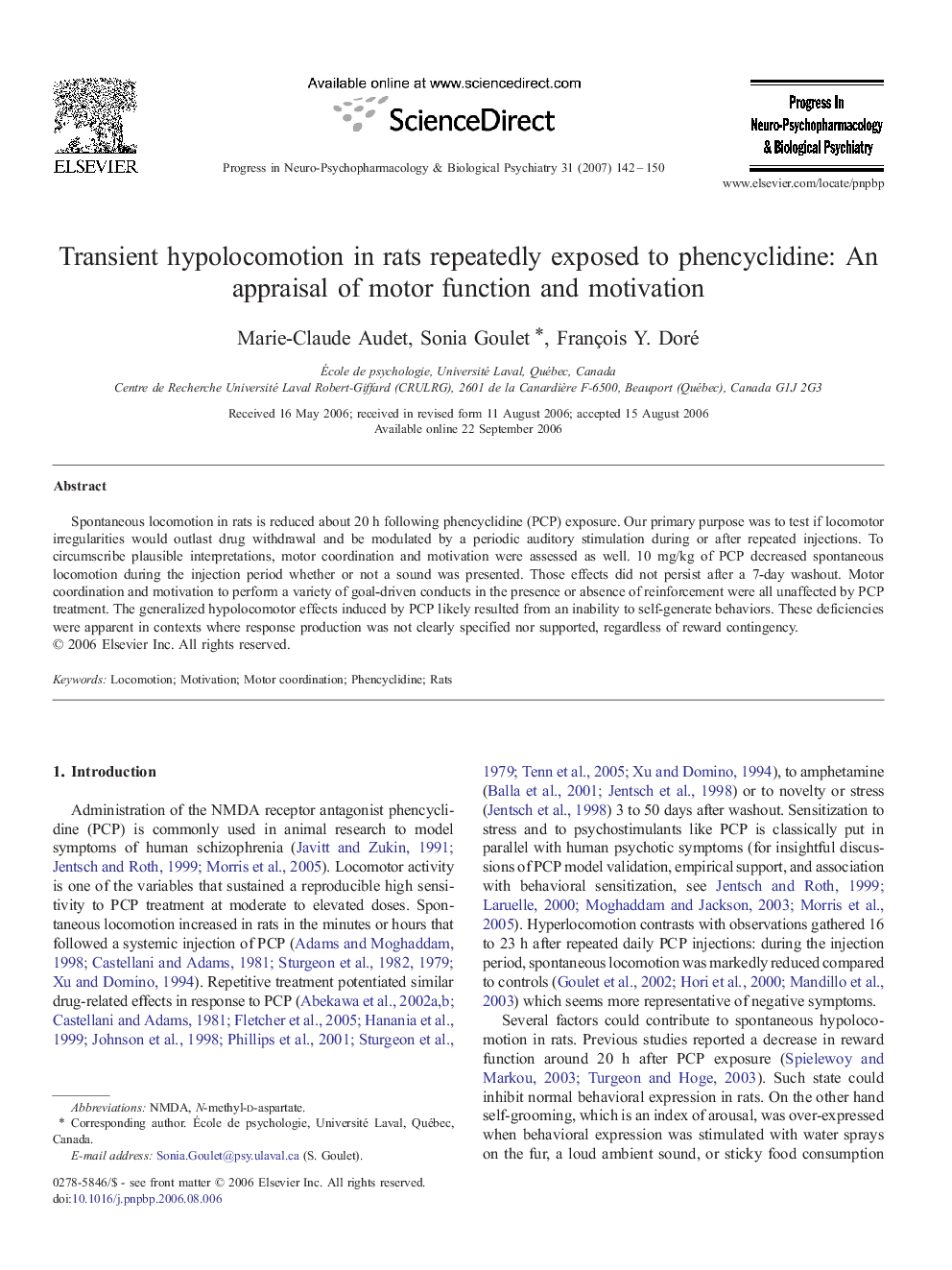| Article ID | Journal | Published Year | Pages | File Type |
|---|---|---|---|---|
| 2566024 | Progress in Neuro-Psychopharmacology and Biological Psychiatry | 2007 | 9 Pages |
Abstract
Spontaneous locomotion in rats is reduced about 20Â h following phencyclidine (PCP) exposure. Our primary purpose was to test if locomotor irregularities would outlast drug withdrawal and be modulated by a periodic auditory stimulation during or after repeated injections. To circumscribe plausible interpretations, motor coordination and motivation were assessed as well. 10Â mg/kg of PCP decreased spontaneous locomotion during the injection period whether or not a sound was presented. Those effects did not persist after a 7-day washout. Motor coordination and motivation to perform a variety of goal-driven conducts in the presence or absence of reinforcement were all unaffected by PCP treatment. The generalized hypolocomotor effects induced by PCP likely resulted from an inability to self-generate behaviors. These deficiencies were apparent in contexts where response production was not clearly specified nor supported, regardless of reward contingency.
Related Topics
Life Sciences
Neuroscience
Biological Psychiatry
Authors
Marie-Claude Audet, Sonia Goulet, François Y. Doré,
